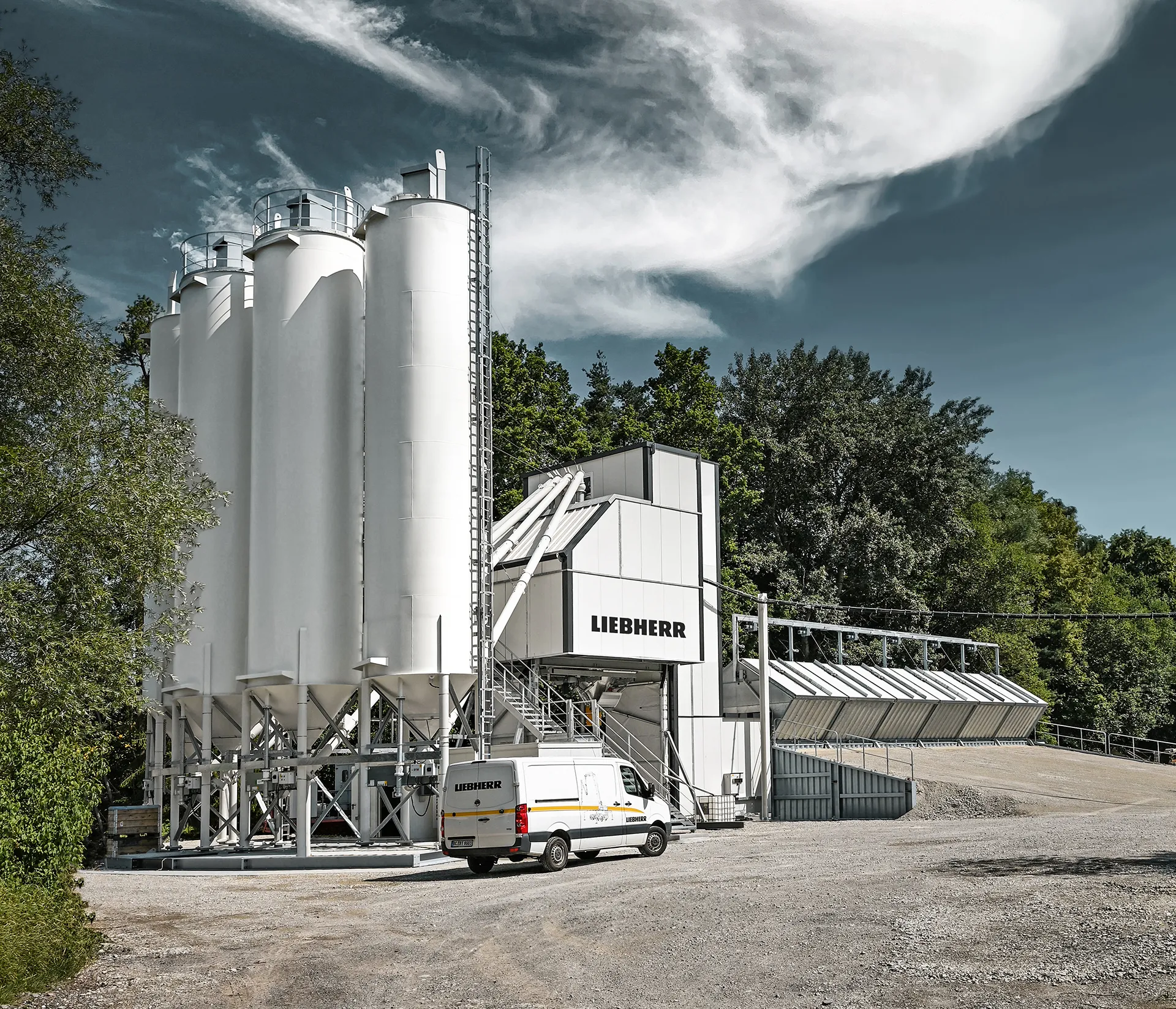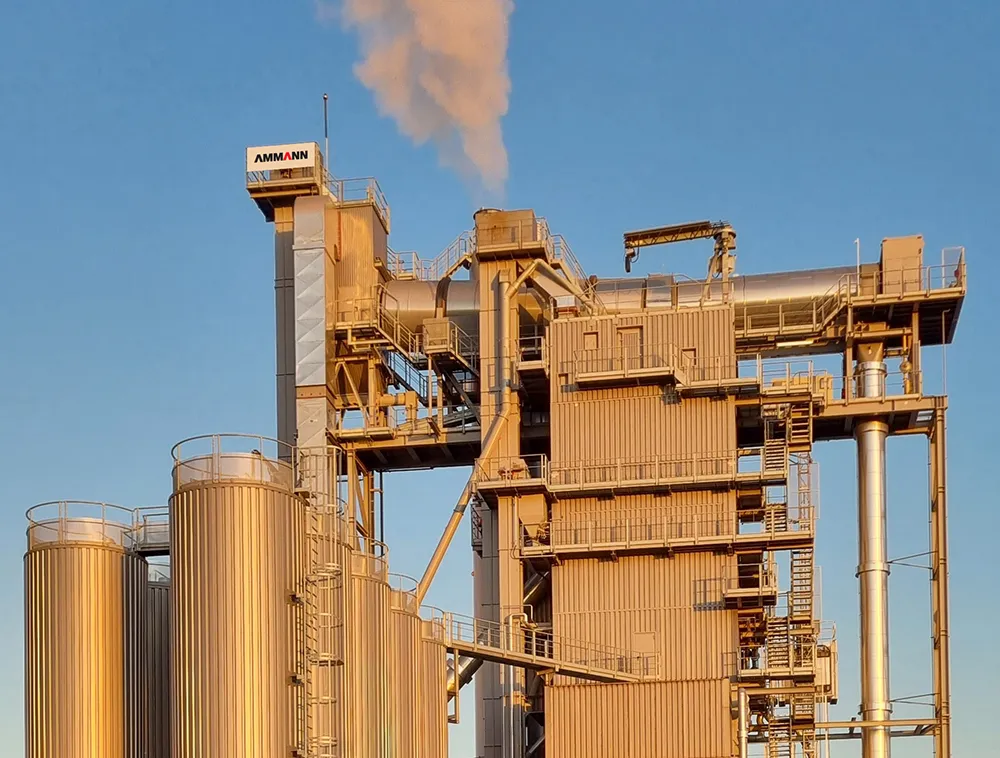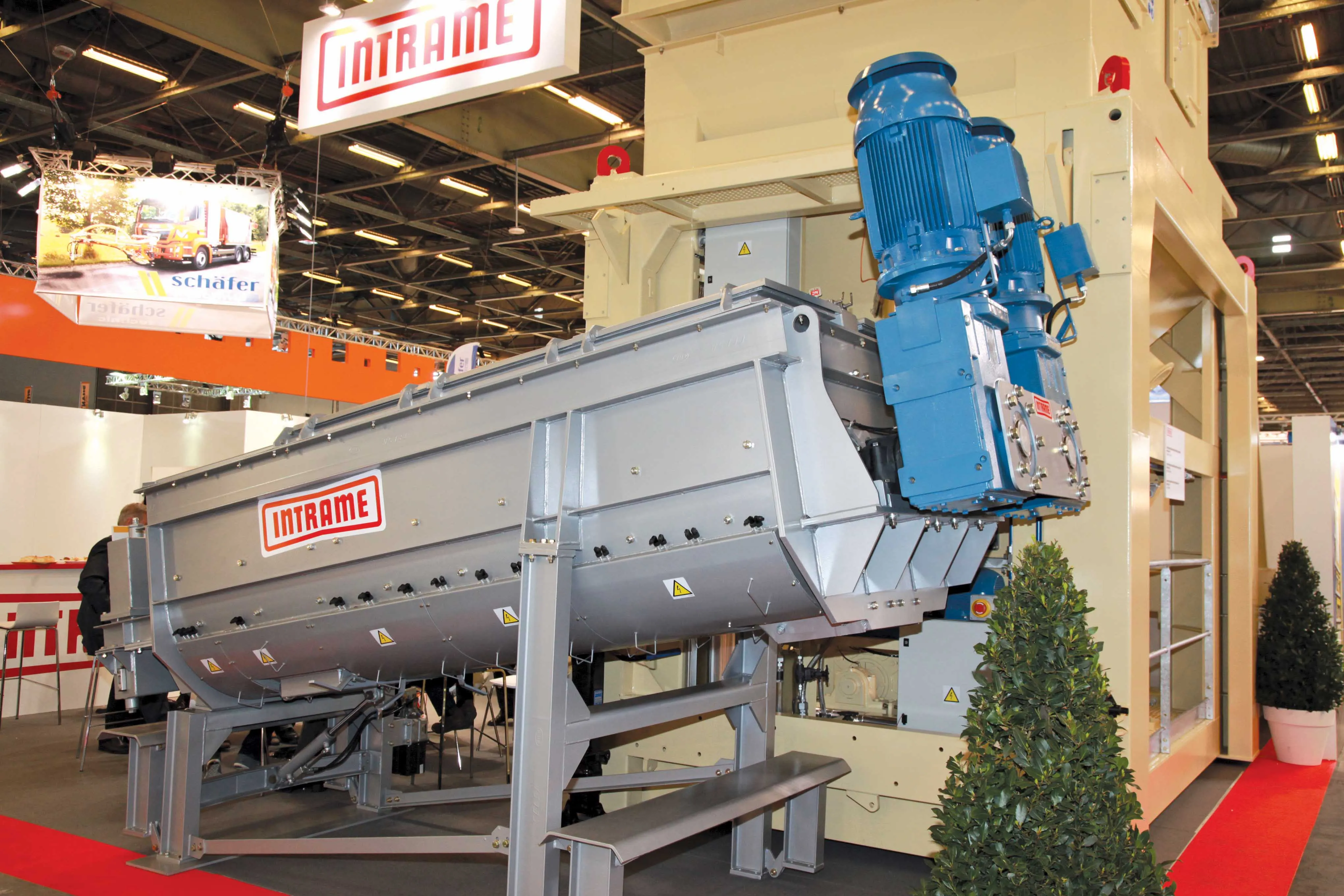
The first of the new generation Liebherr concrete batching plants is going into operation at a+b Asphalt- und Betonmischwerke in Germany. The novel Betomix and Mobilmix batching plants from Liebherr benefit from a modular design. Plug-in modules are said to allow greater mobility when relocating the plant. The modular design means that customers benefit from are range of configuration options, short lead times, fast assembly and high parts availability. The new plants are said to be energy efficient and offer customers cost savings in operation, as well as a high cement weighing accuracy.
The customer has bought a Mobilmix 3.0 concrete batching plant for its Bad Waldsee site in southern Germany. The plant delivers up to 130m³/hour and is equipped with Liebherr DW 3.0 twin-shaft mixer. Up to 210m³ of aggregates can be held in its six storage areas. Four types of cement or binder weighing up to 400tonnes are stored in the cement section.
The new plant requires up to 30% less energy than previous versions. The use of frequency converters for the drives on the mixer and feeder elevator also reduces the issue of peak power levels. The soft start and soft stop of the drives reduces wear and tear on the mechanical parts. The frequency converter allows the speed of the twin-shaft mixer to be changed during mixing to suite the mix design.
The frequency converters enable accuracy when metering cement. With a recipe using 300kg of cement/m3 of concrete, up to 7.5kg of cement can be saved. For an annual output of 50,000m³ of concrete, this corresponds to savings of 375tonnes of cement/year. Production results in a greenhouse potential of 587kg/tonne. According to this, Leiberr says that the new generation of batching plants can save up to 220tonnes of CO2/year.
The modular design allows separate units to be manufactured independently and these are wired and assembled at Liebherr. After testing, the modules are delivered as complete transport units to the construction site.
The module dimensions are optimised and are maximum three metres wide. This makes special transports superfluous for almost all plant variants and therefore reduces transport costs. Due to their folding system and plug connections, the modules can be quickly and efficiently assembled and put into operation at the construction site.








